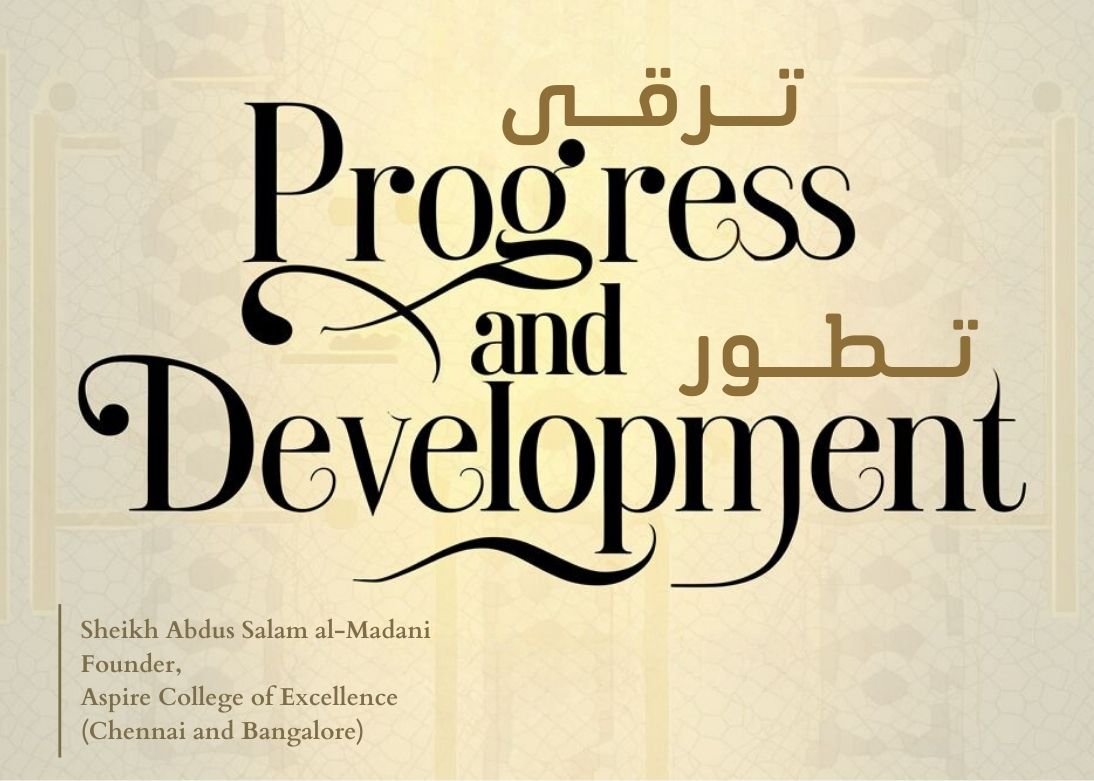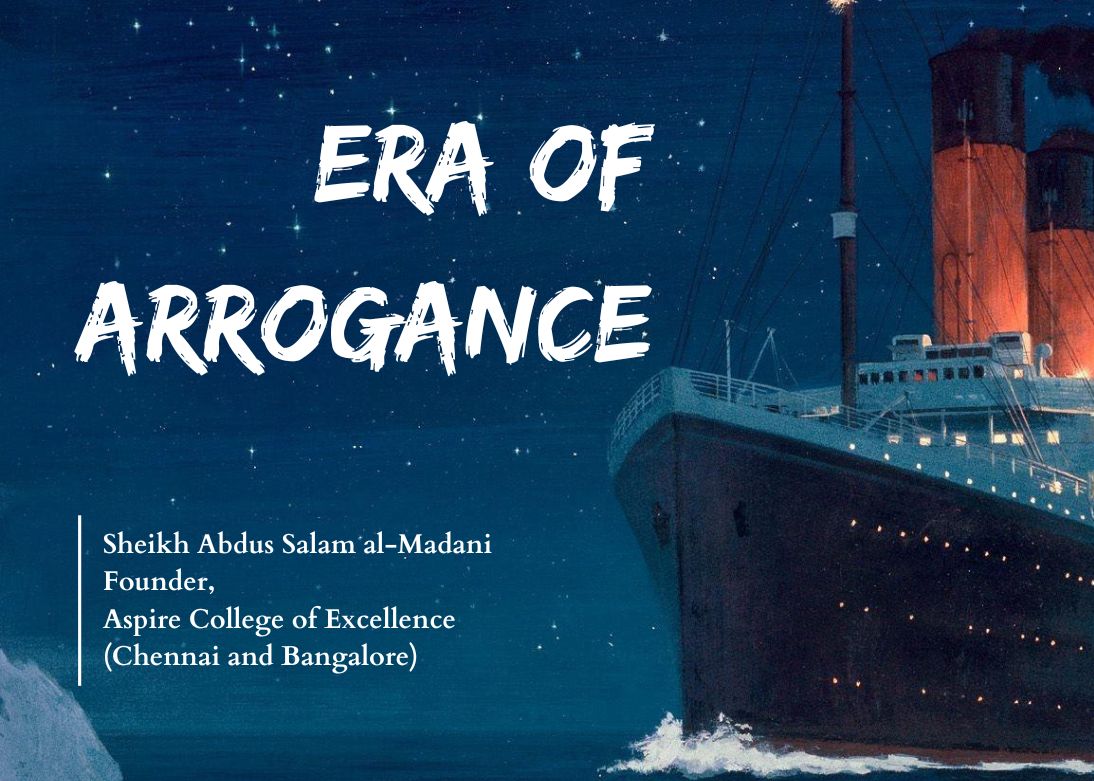
Noteworthy Aspects With Regards to the Incident at Karbala
Is it possible for a believer to even imagine casting doubt on the honor of the Sahaaba, may Allah be pleased with them? But at the same time, it is very disturbing to see the Ahl-us-Sunnah perceive the martyrdom of Hazrat Hussain (RA) in the same rhythm and rhetoric, as the Shi'as.
The belief that the tragedy of Karbala is a battle between truth and falsehood actually amounts to undermining the noble character of the Sahaaba and their religious integrity, and this is the aim of the Shia. But the important point is, for us to think whether this was actually the case or not?
The fact is that it was not a clash of truth and falsehood; it was not a battle of disbelief and Islam; and it was not an Islamic Jihad. Had this been the case, Hazrat Hussain (RA) would not have been alone in this path; he would have had the support of those Sahaabah (RA) who spent their entire lives in making the Word of Allah supreme, who always had their swords bare against falsehood and rose up as a divine challenge in confronting disbelief.
The following aspects are worth considering in understanding the point that this conflict was actually of a political nature:
Events related to Karbala are recorded in history that when Hazrat Hussain (RA) was ready to march towards Kufa, his relatives and sympathizers tried their best to stop him and informed him of the dangerous consequences of such a move. Among them, Hazrat Abdullah bin Umar, Hazrat Abu Saeed Khudri, Hazrat Abu Darda, Hazrat Abu Waqid Laithi, Jabir bin Abdullah, Hazrat Abdullah bin Abbas and Hazrat Hussain's brother Muhammad bin Al-Hanafiyya (RA) were prominent. In response to them, he neither postponed his journey nor put forth any argument for his stance. Otherwise, they would have been willing to cooperate with him in his position. In fact, Hazrat Hussain (RA) beleived that the insistence of the people of Kufa in inviting him to Kufa was sincere in its urgency, and surely going there must be beneficial.
It is also mentioned in history that while he was on his way, news reached him that his cousin Muslim bin Aqeel had been martyred in Kufa, whom he had sent to find out the situation in Kufa. With this tragic news, his trust in the people of Kufa was shaken, and he expressed his desire to return, but the brothers of Hazrat Muslim (may Allah have mercy on him) refused to return saying, "We will avenge our brother Muslim or we will die." Hazrat Hussain (RA) said: "What will I do without you?"
(Taariq al Tabri 4/292 Matba'tul Istiqaamah, Cairo 1939)
And hence the journey of this caravan continued towards Kufa.
Moreover, all histories agree that when Hazrat Hussain (RA) reached the place of Karbala, the Governor of Kufa, Ibn Ziyad forced Umar bin Sa'd to confront Hazrat Hussain (RA). Umar bin Sa'd came and talked to him; and according to several historical narrations, Hazrat Hussain (RA) put the following proposal before him; 'Accept one of these three things: I either go to an Islamic frontier or return to Madinah or else I (go directly) to Yazid bin Muawiyah and pledge allegiance to him. Umar bin Sa'd accepted this proposal. (Al-Isabah: 2/71, printed 1995, Dar ul Kutub Al Ilmiyyah).
After Ibn Sa'd had accepted this, he sent the proposal to Ibn Ziyad (Governor of Kufa), but the Governor refused to accept the proposal and insisted that he first pledge allegiance (to Yazid) at "my hand".
Hazrat Hussain (RA) did not agree with this as his self-dignity did not allow it, so he rejected this provision; upon which the war broke out, and the tragic incident of his martyrdom took place. (Isaabah, 2/71, Al-Tabari 4/293)
فانا للہ وانا الیہ راجعون۔
Indeed, we all belong to Allah and to Him we shall return.
The above-mentioned words of the narration in which Hazrat Hussain (RA) expressed his consent to pledge allegiance to Yazid can be found in "Al-Isaabah", Tahzib al-Tahzeeb, 328/2, 353, Tarikh al-Tabari, 293/4, Tahzeeb Tarikh Ibn Asakir, 325/4, 337, Al-Bidaayah wa Al-Nihaayah, 170/8, 175, Kamil Ibn Athir, 283. /3 and many other books; even in the books of Shia! Though they have other words too, but they do not make any significant difference in terms of the result.
From these historical proofs, it is evident that had it been a battle of truth and falsehood, Hazrat Hussain (RA) would not have shown determination to turn back after getting the news of Muslim bin Aqeel's martyrdom upon nearing Kufa. It is obvious that the duty of vindication of truth and falsification of falsehood is not waived off by the martyrdom of someone in the path of truth.
From the terms of reconciliation that Hazrat Hussain (RA) put before Umar bin Sa'd, it becomes very clear that though he had initial reservations in his mind about Yazid, but later he expressed his willingness to accept the sovereignty of Yazid.
One more thing that is clear from this is that Hussain (RA) did not consider Amir Yazid as a transgressor or unfit for government. If that was the case, he would not have been ready to pledge allegiance to Yazid. His demand to go to Yazid also shows that he expected good treatment from him. No one longs (even as a last resort) to meet a cruel and tyrannical king.
From this description, the people who were responsible for this tragedy were also exposed, and that is Ibn Ziyad's army, who were all the same Kufis who had written letters and invited him, and these were the very same people who caused the reconciliation efforts of Umar bin Sa'd to fail, which led to the tragic martyrdom of Karbala.
وَكَانَ أَمْرُ ٱللَّهِ قَدَرًا مَّقْدُورًا
{And the command of Allah is a decree determined}
For more details, kindly refer to other articles of the book named, Saaniha-e-Karbala Pasmanzar aur Asbaab
Excerpted from the book "Rusumaat e Muharram ul Haram and Saaniha-e- Karbala"
by Salahuddin Yusuf. May Allah have mercy on him.
Comments (0)
Categories
Recent posts


Ramadhan Departure
15 Apr 2024
Era of Arrogance
6 Feb 2024
Tears of a Man
13 Feb 2024




